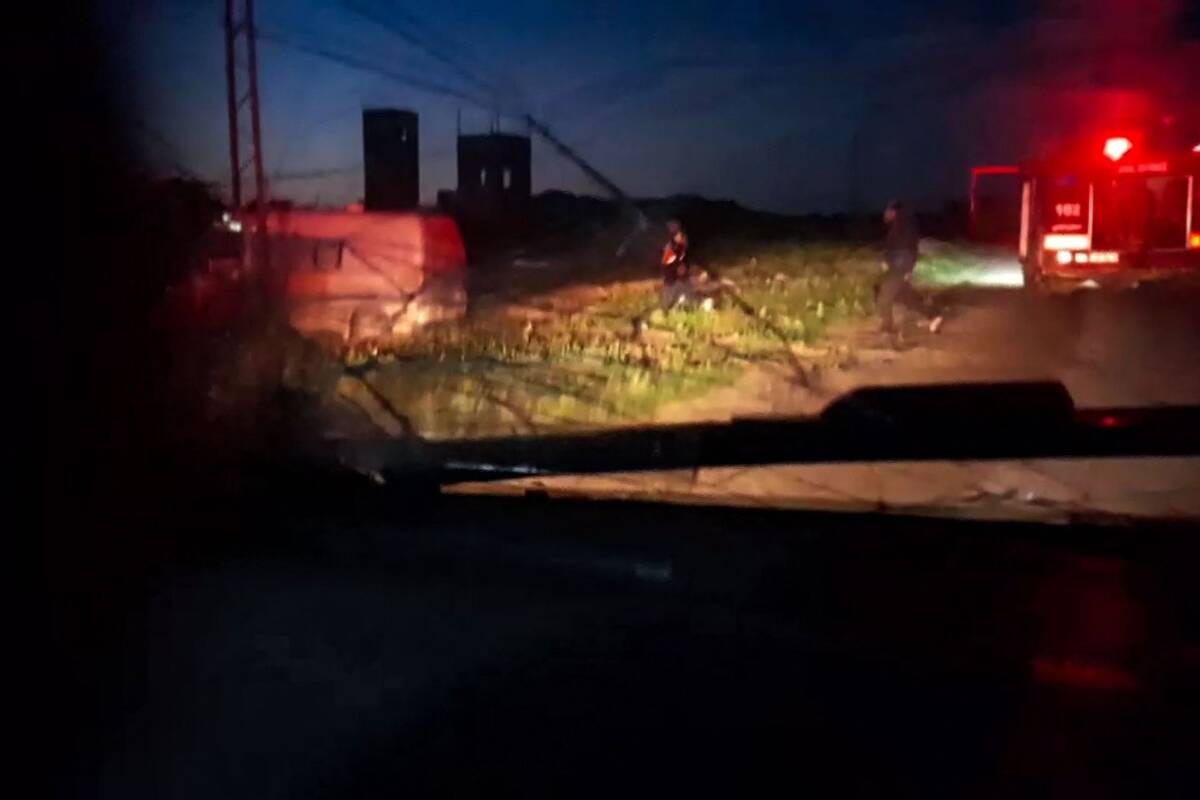JERUSALEM/BEIRUT/MANILA: Rocket fire from Lebanon killed an Israeli civilian on Tuesday, medics said, adding to tensions at the frontier as Lebanon braced for Israeli retaliation against Hezbollah after a deadly missile strike in the Israeli-occupied Golan Heights.
Tensions have spiked since Saturday when the rocket killed 12 children and teenagers at a football pitch in a Druze village. Israel accused the Iran-backed Hezbollah and vowed a harsh response. Hezbollah has denied involvement.
As diplomats sought to contain the fallout, US Defense Secretary Lloyd Austin said he did not believe a fight was inevitable between Hezbollah and Israel, though he remained concerned about the potential for escalation.
Hezbollah and Israel, which last fought each other in a major war in 2006, have been trading fire since the eruption of the Gaza war in October, after Hezbollah began attacking Israeli territory in what it says is solidarity with the Palestinians.
The hostilities have mostly been contained to the frontier region and both sides have previously indicated they do not seek a wider confrontation even as the conflict has prompted worry about the risk of a slide toward war.
In the latest exchanges of fire on Tuesday, the Israeli military said 10 rockets had been fired from Lebanon and one hit Kibbutz Hagoshrim, causing one casualty. Israel’s ambulance service said the 30-year-old male died of shrapnel wounds.
Israel said it hit some 10 Hezbollah targets in south Lebanon overnight and killed one Hezbollah fighter — attacks which appeared to be in keeping with the pattern of the last nine months. Hezbollah confirmed one of its fighters was killed.
Hezbollah, one of the world’s most heavily armed non-state groups, said its air defense unit had fired at Israeli warplanes which broke the sound barrier over Lebanon, forcing them to retreat.
A spokesperson for the Israeli military said it was unfamiliar with any such incident.
The United States has been leading a diplomatic effort to deter Israel from striking Lebanon’s capital Beirut or major civil infrastructure in response to Saturday’s attack, five people with knowledge of the drive told Reuters on Monday.
“While we’ve seen a lot of activity on Israel’s northern border, we remain concerned about the potential of this escalating into a full-blown fight. And I don’t believe that a fight is inevitable,” US Defense Secretary Austin said during a visit to Manila.
“We’d like to see things resolved in a diplomatic fashion,” he added in a joint news conference following security talks between himself, US Secretary of State Antony Blinken and their respective Philippine counterparts.
Two Israeli officials said on Monday that Israel wanted to hurt Hezbollah but not drag the Middle East into all-out war.
Some flights at Beirut’s international airport have been canceled or delayed this week due to the heightened tensions.
Hezbollah has denied firing the rocket that hit the village of Majdal Shams on Saturday. It said it had fired a missile against a military target on the Golan, a border region Israel seized from Syria in 1967.
Tens of thousands of people have fled or been evacuated from towns and villages on both sides of the frontier since the cross border firing began in October.
Israeli strikes have killed around 350 Hezbollah fighters in Lebanon and more than 100 civilians, according to security and medical sources and a Reuters tally of Hezbollah death notifications.
Twenty-four civilians, including one on Tuesday and 12 on Saturday, have been killed in Hezbollah attacks since October, along with at least 17 soldiers, according to Israeli tallies.
Israeli killed by rocket from Lebanon, Austin believes conflict not inevitable
https://arab.news/234zh
Israeli killed by rocket from Lebanon, Austin believes conflict not inevitable

- As diplomats sought to contain the fallout, US Defense Secretary Lloyd Austin said he did not believe a fight was inevitable between Hezbollah and Israel
- Hezbollah said its air defense unit had fired at Israeli warplanes which broke the sound barrier over Lebanon, forcing them to retreat



























